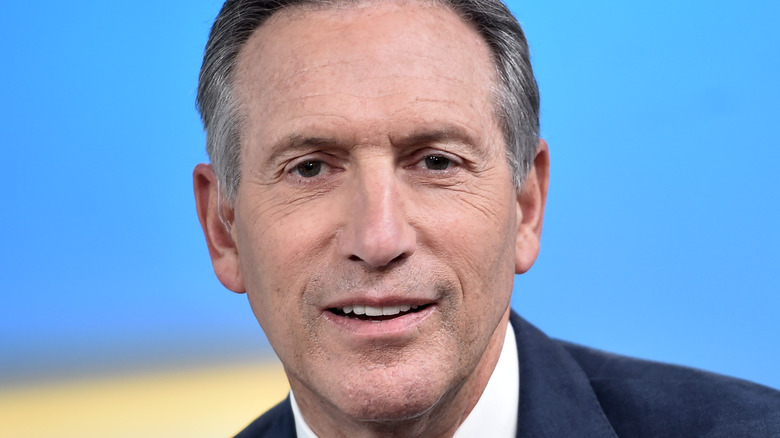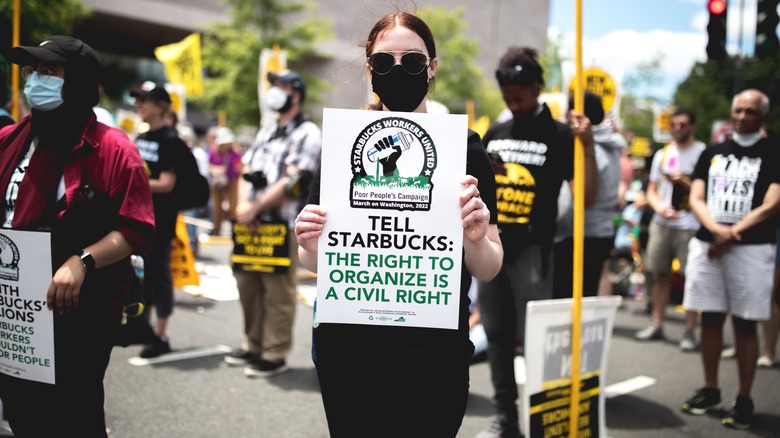Howard Schultz Clearly Didn't Return To Starbucks To Fix The Union Crisis
Starbucks interim CEO Howard Schultz's role in this position is soon coming to an end. Schultz returned as CEO of the Seattle-based coffee company for the third time in early 2022 when then-CEO Kevin Johnson retired, taking on the job in a volunteer role with a salary of just $1, but will be replaced by the newly hired CEO to-be, Laxman Narasimhan, who will take the position in April 2023.
Schultz's return to the role of CEO came amidst the Starbucks labor union push with the chain's first store — in Buffalo, New York — of the modern unionization movement voting in late 2021 to unionize. By March 2022, over 100 Starbucks locations had petitioned to vote for unionization. Before the first Buffalo store unionized, Schultz penned a letter urging them to reconsider.
Recently, Schultz spoke with CNN about the issue of unionization, and let's just say his opinions haven't changed.
Howard Schultz says unions are against Starbucks' vision
Howard Schultz, who helped stop unionization efforts at Starbucks in the late 1980s, reprised his anti-union position when returning as interim CEO. He defended his stance early on in his 1999 book "Pour Your Heart Into It," saying, "I was convinced that under my leadership, employees would come to realize that I would listen to their concerns. If they had faith in me and my motives, they wouldn't need a union" (via HuffPost).
Schultz participated in an interview with CNN recently, speaking about his long-spanning role with the company and his thoughts on Starbucks' widespread unionization. Schultz remains steadfast in his opinions about unions, and it's clear that when he returned to the CEO position last year, it wasn't to fix the union crisis, but to rather, "restore [the] values" the company is founded on, claiming unions are contrary to Starbucks' "vision." "It's my belief that the efforts of unionization in America are in many ways a manifestation of a much bigger problem. There is a macro issue here that is much, much bigger than Starbucks," Schultz said (per CNN).

